Top tips for responsible travel in a post-virus world
When we emerge from the COVID-19 lockdowns and start to travel again, it is important to do so in a responsible way. We have already seen the positive environmental effects of the virus: fish visible in Venice’s canals, air quality improvements in major cities, much less waste… not to mention the sharp fall in CO₂ emissions.
When we do travel again, by doing so responsibly, we can help these positive trends continue – perhaps this virus will, ironically, save our planet.
 Here are the seven best practices you can follow:
7. Understand local customs and culture of your intended destination
Be in the know. Research the local culture and customs before going to the place. Learn how to behave, dress, and interact with the locals. RESPECT can bridge cultural differences and allow you to connect meaningfully with people.
Taking pictures is good but it is advisable to ask permission first, as it may be a “no-no” to some cultures. Always ask before entering an area of cultural significance. Practice saying “thank you”, “please”, “can I” – it is more pleasing to the ears and will endear you with the locals, no matter how bad your pronunciation!
Here are the seven best practices you can follow:
7. Understand local customs and culture of your intended destination
Be in the know. Research the local culture and customs before going to the place. Learn how to behave, dress, and interact with the locals. RESPECT can bridge cultural differences and allow you to connect meaningfully with people.
Taking pictures is good but it is advisable to ask permission first, as it may be a “no-no” to some cultures. Always ask before entering an area of cultural significance. Practice saying “thank you”, “please”, “can I” – it is more pleasing to the ears and will endear you with the locals, no matter how bad your pronunciation!
 6. Choose eco-luxury accommodation
For responsible travel, choosing to stay in eco-conscious hotels or lodges is an effective way to minimise the negative effects associated with travel.
Sadly there is a lot of “Green-washing” with hotels jumping on the bandwagon that are not as green or sustainable as they claim. You can do your own research, or book through a tour operator that has vetted the eco-luxury properties that they feature and recommend.
6. Choose eco-luxury accommodation
For responsible travel, choosing to stay in eco-conscious hotels or lodges is an effective way to minimise the negative effects associated with travel.
Sadly there is a lot of “Green-washing” with hotels jumping on the bandwagon that are not as green or sustainable as they claim. You can do your own research, or book through a tour operator that has vetted the eco-luxury properties that they feature and recommend.
 5. Offset your carbon footprint
Flying is frequently a feature of travelling and sadly airlines are a major contributor to CO2 emissions. You can offset these emissions – your tour operator can often do it for you.
Some airlines sell carbon credits when you buy an air ticket, they give you the option to buy carbon credits or to donate to carbon-offsetting organizations.
4. Reduce waste
Be intentional in choosing accommodations with effective waste management solutions. This helps reduce the environmental impact of the tourism industry.
As a traveler, you should be mindful not to add to the waste problem of the planet by improperly disposing of your rubbish. Bring along your own reusable water bottles, cups and straws to eliminate the need for disposable ones and reduce your own waste levels.
There are certain countries that ban the use of plastic bags and containers so bringing your own reusable bags is suggested to avoid the need for plastic bags when shopping.
Watch this video from National Geographic on how to avoid single-use plastics when traveling.
3. Conserve water
Especially in locations facing water shortages (there aren’t many places in the developing world that aren’t!) choose to stay at those eco-luxury hotels with sustainable water practices, such as rainwater harvesting systems and proper greywater and blackwater treatment methods. You too can help in water conservation by using water responsibly. As simple as turning off the water while you washing your face or brushing your teeth can make a great contribution to water conservation efforts.
2. Go local
This includes buying local produce, locally made souvenirs, and using local guides. It also means dining at restaurants that source their food locally (low food miles) – a good travel advisor can assist with recommendations. I also recommend using local guides, who are experts and you will appreciate their “local knowledge”.
5. Offset your carbon footprint
Flying is frequently a feature of travelling and sadly airlines are a major contributor to CO2 emissions. You can offset these emissions – your tour operator can often do it for you.
Some airlines sell carbon credits when you buy an air ticket, they give you the option to buy carbon credits or to donate to carbon-offsetting organizations.
4. Reduce waste
Be intentional in choosing accommodations with effective waste management solutions. This helps reduce the environmental impact of the tourism industry.
As a traveler, you should be mindful not to add to the waste problem of the planet by improperly disposing of your rubbish. Bring along your own reusable water bottles, cups and straws to eliminate the need for disposable ones and reduce your own waste levels.
There are certain countries that ban the use of plastic bags and containers so bringing your own reusable bags is suggested to avoid the need for plastic bags when shopping.
Watch this video from National Geographic on how to avoid single-use plastics when traveling.
3. Conserve water
Especially in locations facing water shortages (there aren’t many places in the developing world that aren’t!) choose to stay at those eco-luxury hotels with sustainable water practices, such as rainwater harvesting systems and proper greywater and blackwater treatment methods. You too can help in water conservation by using water responsibly. As simple as turning off the water while you washing your face or brushing your teeth can make a great contribution to water conservation efforts.
2. Go local
This includes buying local produce, locally made souvenirs, and using local guides. It also means dining at restaurants that source their food locally (low food miles) – a good travel advisor can assist with recommendations. I also recommend using local guides, who are experts and you will appreciate their “local knowledge”.
 1. Give back
Through volunteering, supporting conservation projects, assisting wildlife, building a home, helping at a soup kitchen, teaching or renovating a school, there are many ways you can help and leave a legacy. Giving back can deeply enrich your own experience, and leave your chosen destination better off. Even small things and gestures can go a long way.
1. Give back
Through volunteering, supporting conservation projects, assisting wildlife, building a home, helping at a soup kitchen, teaching or renovating a school, there are many ways you can help and leave a legacy. Giving back can deeply enrich your own experience, and leave your chosen destination better off. Even small things and gestures can go a long way.
 You can be the change
Responsible travel can be done. These are just a few simple things you can do to make a positive impact while traveling. When we begin travelling again, doing so responsibly is all the more important. Do a small part to help so that your children and your children’s children will still enjoy the same clean air you breathe, the clear water you drink and the great experiences that you have.
Christopher Hill is Founder and CEO at Hands Up Holidays. Hands Up Holidays is an award-winning travel company specialising in tailor-made luxury family trips that combine sightseeing with hands-on service projects.
If you would like to be a guest blogger on A Luxury Travel Blog in order to raise your profile, please contact us.
You can be the change
Responsible travel can be done. These are just a few simple things you can do to make a positive impact while traveling. When we begin travelling again, doing so responsibly is all the more important. Do a small part to help so that your children and your children’s children will still enjoy the same clean air you breathe, the clear water you drink and the great experiences that you have.
Christopher Hill is Founder and CEO at Hands Up Holidays. Hands Up Holidays is an award-winning travel company specialising in tailor-made luxury family trips that combine sightseeing with hands-on service projects.
If you would like to be a guest blogger on A Luxury Travel Blog in order to raise your profile, please contact us.
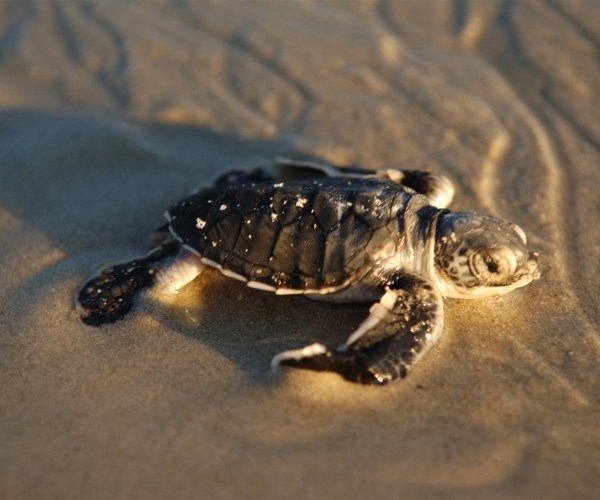 Here are the seven best practices you can follow:
7. Understand local customs and culture of your intended destination
Be in the know. Research the local culture and customs before going to the place. Learn how to behave, dress, and interact with the locals. RESPECT can bridge cultural differences and allow you to connect meaningfully with people.
Taking pictures is good but it is advisable to ask permission first, as it may be a “no-no” to some cultures. Always ask before entering an area of cultural significance. Practice saying “thank you”, “please”, “can I” – it is more pleasing to the ears and will endear you with the locals, no matter how bad your pronunciation!
Here are the seven best practices you can follow:
7. Understand local customs and culture of your intended destination
Be in the know. Research the local culture and customs before going to the place. Learn how to behave, dress, and interact with the locals. RESPECT can bridge cultural differences and allow you to connect meaningfully with people.
Taking pictures is good but it is advisable to ask permission first, as it may be a “no-no” to some cultures. Always ask before entering an area of cultural significance. Practice saying “thank you”, “please”, “can I” – it is more pleasing to the ears and will endear you with the locals, no matter how bad your pronunciation!
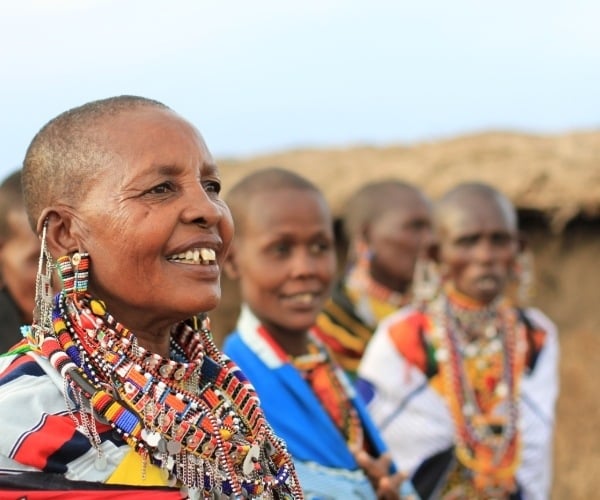 6. Choose eco-luxury accommodation
For responsible travel, choosing to stay in eco-conscious hotels or lodges is an effective way to minimise the negative effects associated with travel.
Sadly there is a lot of “Green-washing” with hotels jumping on the bandwagon that are not as green or sustainable as they claim. You can do your own research, or book through a tour operator that has vetted the eco-luxury properties that they feature and recommend.
6. Choose eco-luxury accommodation
For responsible travel, choosing to stay in eco-conscious hotels or lodges is an effective way to minimise the negative effects associated with travel.
Sadly there is a lot of “Green-washing” with hotels jumping on the bandwagon that are not as green or sustainable as they claim. You can do your own research, or book through a tour operator that has vetted the eco-luxury properties that they feature and recommend.
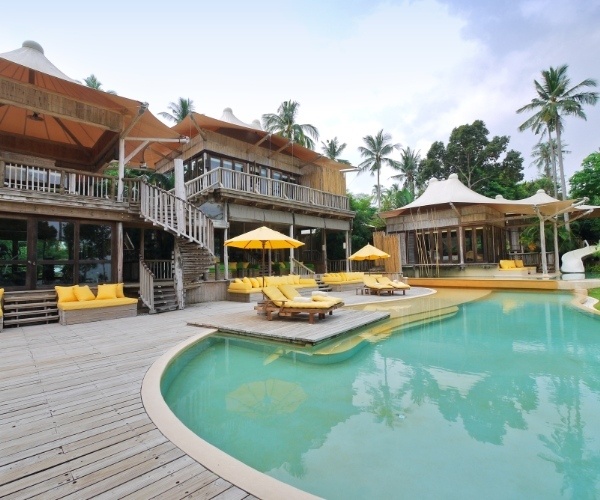 5. Offset your carbon footprint
Flying is frequently a feature of travelling and sadly airlines are a major contributor to CO2 emissions. You can offset these emissions – your tour operator can often do it for you.
Some airlines sell carbon credits when you buy an air ticket, they give you the option to buy carbon credits or to donate to carbon-offsetting organizations.
4. Reduce waste
Be intentional in choosing accommodations with effective waste management solutions. This helps reduce the environmental impact of the tourism industry.
As a traveler, you should be mindful not to add to the waste problem of the planet by improperly disposing of your rubbish. Bring along your own reusable water bottles, cups and straws to eliminate the need for disposable ones and reduce your own waste levels.
There are certain countries that ban the use of plastic bags and containers so bringing your own reusable bags is suggested to avoid the need for plastic bags when shopping.
Watch this video from National Geographic on how to avoid single-use plastics when traveling.
3. Conserve water
Especially in locations facing water shortages (there aren’t many places in the developing world that aren’t!) choose to stay at those eco-luxury hotels with sustainable water practices, such as rainwater harvesting systems and proper greywater and blackwater treatment methods. You too can help in water conservation by using water responsibly. As simple as turning off the water while you washing your face or brushing your teeth can make a great contribution to water conservation efforts.
2. Go local
This includes buying local produce, locally made souvenirs, and using local guides. It also means dining at restaurants that source their food locally (low food miles) – a good travel advisor can assist with recommendations. I also recommend using local guides, who are experts and you will appreciate their “local knowledge”.
5. Offset your carbon footprint
Flying is frequently a feature of travelling and sadly airlines are a major contributor to CO2 emissions. You can offset these emissions – your tour operator can often do it for you.
Some airlines sell carbon credits when you buy an air ticket, they give you the option to buy carbon credits or to donate to carbon-offsetting organizations.
4. Reduce waste
Be intentional in choosing accommodations with effective waste management solutions. This helps reduce the environmental impact of the tourism industry.
As a traveler, you should be mindful not to add to the waste problem of the planet by improperly disposing of your rubbish. Bring along your own reusable water bottles, cups and straws to eliminate the need for disposable ones and reduce your own waste levels.
There are certain countries that ban the use of plastic bags and containers so bringing your own reusable bags is suggested to avoid the need for plastic bags when shopping.
Watch this video from National Geographic on how to avoid single-use plastics when traveling.
3. Conserve water
Especially in locations facing water shortages (there aren’t many places in the developing world that aren’t!) choose to stay at those eco-luxury hotels with sustainable water practices, such as rainwater harvesting systems and proper greywater and blackwater treatment methods. You too can help in water conservation by using water responsibly. As simple as turning off the water while you washing your face or brushing your teeth can make a great contribution to water conservation efforts.
2. Go local
This includes buying local produce, locally made souvenirs, and using local guides. It also means dining at restaurants that source their food locally (low food miles) – a good travel advisor can assist with recommendations. I also recommend using local guides, who are experts and you will appreciate their “local knowledge”.
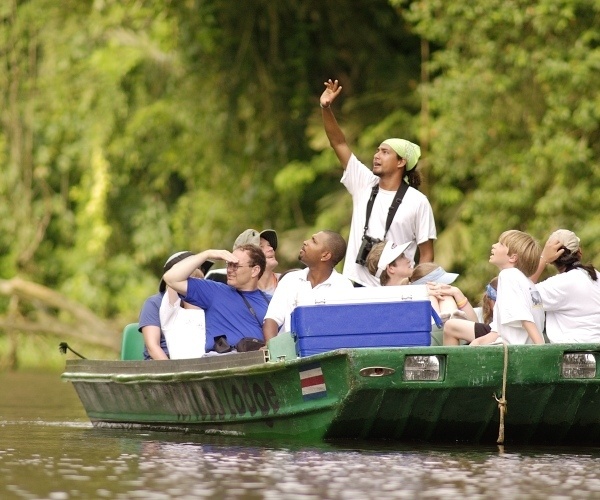 1. Give back
Through volunteering, supporting conservation projects, assisting wildlife, building a home, helping at a soup kitchen, teaching or renovating a school, there are many ways you can help and leave a legacy. Giving back can deeply enrich your own experience, and leave your chosen destination better off. Even small things and gestures can go a long way.
1. Give back
Through volunteering, supporting conservation projects, assisting wildlife, building a home, helping at a soup kitchen, teaching or renovating a school, there are many ways you can help and leave a legacy. Giving back can deeply enrich your own experience, and leave your chosen destination better off. Even small things and gestures can go a long way.
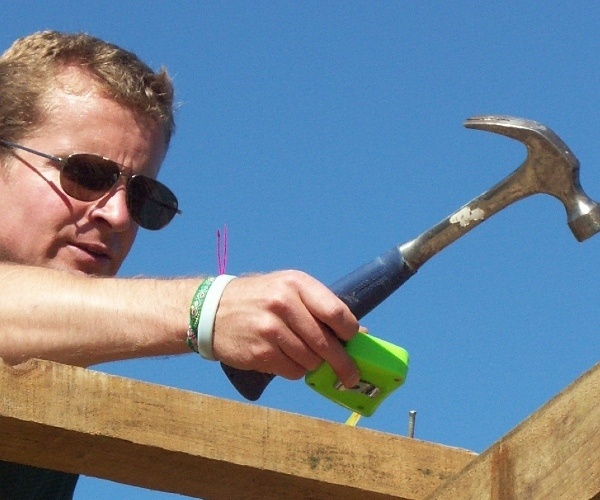 You can be the change
Responsible travel can be done. These are just a few simple things you can do to make a positive impact while traveling. When we begin travelling again, doing so responsibly is all the more important. Do a small part to help so that your children and your children’s children will still enjoy the same clean air you breathe, the clear water you drink and the great experiences that you have.
Christopher Hill is Founder and CEO at Hands Up Holidays. Hands Up Holidays is an award-winning travel company specialising in tailor-made luxury family trips that combine sightseeing with hands-on service projects.
If you would like to be a guest blogger on A Luxury Travel Blog in order to raise your profile, please contact us.
You can be the change
Responsible travel can be done. These are just a few simple things you can do to make a positive impact while traveling. When we begin travelling again, doing so responsibly is all the more important. Do a small part to help so that your children and your children’s children will still enjoy the same clean air you breathe, the clear water you drink and the great experiences that you have.
Christopher Hill is Founder and CEO at Hands Up Holidays. Hands Up Holidays is an award-winning travel company specialising in tailor-made luxury family trips that combine sightseeing with hands-on service projects.
If you would like to be a guest blogger on A Luxury Travel Blog in order to raise your profile, please contact us.Did you enjoy this article?
Receive similar content direct to your inbox.


What’s the point of travelling unless you are going to understand the local culture and customs? If all you want is some sunshine and a break from home then you can you can go and stay in some tower block somewhere and sizzle by a swimming pool.
Yeah, that’s a great way of looking at things. The best experiences I’ve had while traveling around the world are often related to experiencing what it’s like to live like a local. And the most interesting places, I’ve found, are rich in culture. You can’t really find this out until you actually go there. So, you’re exactly right!
Clearly you are a kindred spirit! Sadly millions of people don’t yet feel the same.
Sadly, I think that it will be a while before normal travel resumes. Here in Britain, the government is strongly advising against non-essential travel.
The silver-lining of all this is that it will give people time to stop and think and read pieces like this. Travellers will definitely have changed their priorities by the next time they reach for their passport.
You have the right approach, Bob: to find the silver lining in adversity!
Although it’s hard to appreciate the benefit at the moment when we know how many people are dying, the way the reduced activity is helping the environment is quite eye opening. I’m finding it hard to imagine what will happen in a few months’ time, whether people will still be too scared to go out or whether there will be a boom very quickly with everyone rushing to catch up on what they’ve been missing out on. It’s hard to see how this will end at the moment because you get the feeling there will always be cases and there will forever be some part of the virus lurking. It’s tricky to get your head around but it’s undeniably going to have a lasting effect on society for some time to come no matter what happens.
Really good tips. I think eco accommodation is going to be one to look out for. A few years ago I wouldn’t have come across this when searching for holidays at all and now it’s one of the big bonuses when you find a place listed as being eco friendly. Offsetting your footprint is something that needs to be promoted more I think. People need to be given more advice on how to do this and what’s available because it’s such a good idea. And reducing waste I think, hopefully, will improve as we build it into our daily life and lifestyle habits.
Yes, I think eco-accommodation is going to be a big part of travel in the future. As soon as it’s affordable and the taboo is removed, or things change in a revolutionary way with regard to how people can travel. One of the biggest things is surely reducing waste because there’s nothing worse than seeing your favorite place ruined with trash or overconsumption. Hopefully, this puts a spotlight on some more efficient, positive and sustainable ways to move forward.
It’s definitely a good time to look at things in a new way. I keep hearing that things will never be the same… And I think that’s true and for the most part, it could even be a good thing. Especially when it comes to how we think about travel and realizing that sometimes we take things for granted and need to be a little more respectful and appreciative of these opportunities in the future.
I think the virus was really a wake up call for everyone to take extra care of the planet. However, these are the things that we should have done in the first place even without the threat of a virus. Some say that “normal” travel will probably resume by 2023 since this pandemic affected our lives in many different ways. As we nearly face an economic recession, we must do our part and practice responsible travelling habits not just to help business owners lessen their cost in maintaining their business but also help in taking care of our environment. Moreover, companies should also start an initiative to contribute to preserving the environment. Progress should not always be linked to establishing high rise buildings and vast highways. We should always think about how we can achieve development in the present generation without jeopardizing the future. Let this pandemic be a lesson to be responsible and disciplined in everything that we do especially as we step into a foreign land.